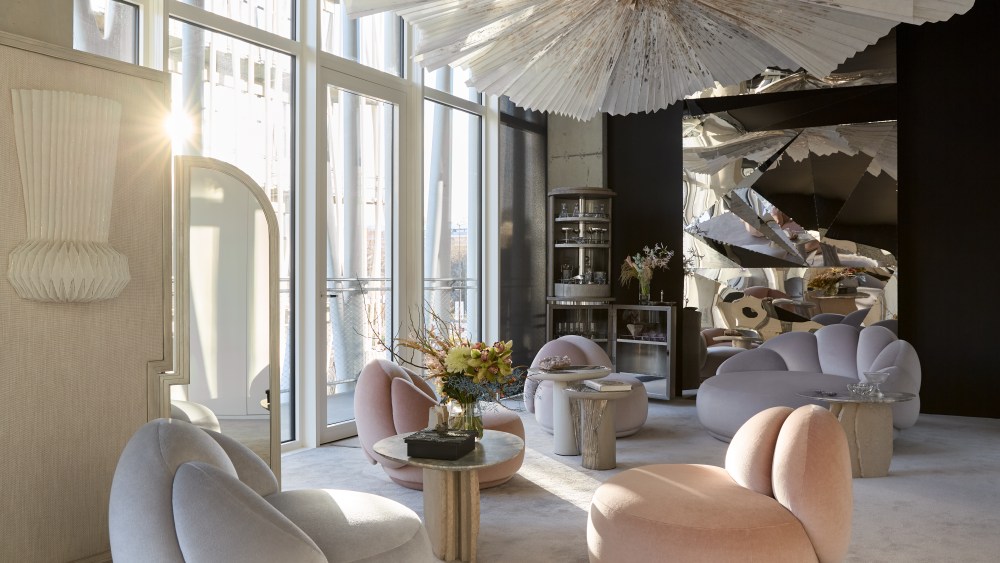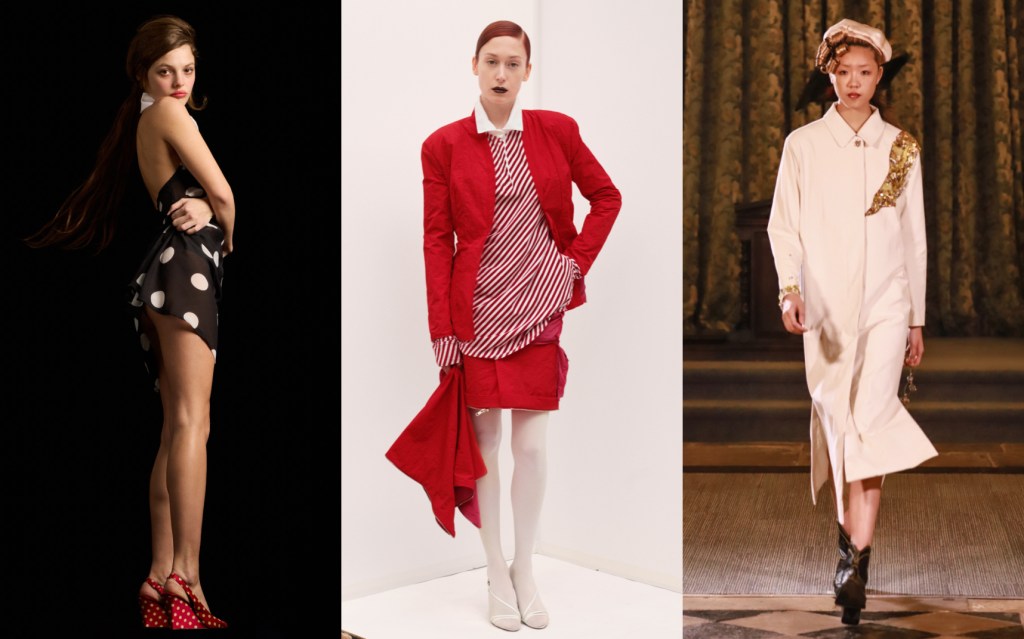PARIS — Few architects are as closely linked to fashion as Aline Asmar d’Amman.
The founder of the Culture in Architecture studio worked with Karl Lagerfeld on several projects, including the design of luxury suites for the Hôtel de Crillon in Paris, and has maintained a close relationship with Chanel even after the iconic designer passed away in 2019.
Earlier this year, she was the first guest of the Reading Room at 7L, the bookstore, library and publishing house founded by Lagerfeld that was acquired by Chanel in 2021.
Now she has founded a permanent home at Le19M, Chanel’s hub for craftsmanship on the edge of Paris. Asmar d’Amman has designed Le Petit Salon, a private space for receptions and events, in collaboration with several of the location’s specialty workshops.
You May Also Like
“The idea of working with the Métiers d’Art was to bring the architectural world into the Métiers d’Art fashion world,” she said on a tour of the premises. “The boundary between creating for fashion or creating for interiors is so thin.”

For the Lebanese architect and furniture designer, who draws much of her inspiration from the intricate gestures of haute couture, the assignment was a perfect fit, especially since she often works with Le19M divisions like embroiderer Lesage Intérieurs on her projects.
“The ideal carte blanche that you can ever get in your life is a carte blanche with the houses of Chanel. This is like a dream for an architect,” she said. “It’s a space where you can create in a different dimension.”
The entrance to Le Petit Salon is accessed from the interior garden of Le19M’s headquarters designed by award-winning architect Rudy Ricciotti, a striking structure covered in a concrete shell evoking threads. “I love the strength and the force of this building,” Asmar d’Amman enthused.
She has taken over two floors with a selection of her pieces, some of which were created for her stint as guest of honor and president of the jury of last year’s Design Parade Toulon interior design festival, sponsored by Chanel.
In the ground floor lobby, a mobile with eight branches showcases some of the skills of the roughly 700 craftspeople who work inside the building.

Milliner Maison Michel contributed an oversized Provençal straw hat studded with pearls; Lesage, a bust embroidered with beads and feathers; shoemaker Massaro, a shoe last wrapped in velvet ribbon, and jeweler Gossens, a pendant made of gilded brass leaves intertwined with slices of rock crystal.
“It’s a giant dream catcher,” said Asmar d’Amman, who sees it as a space for contemplation. “The gesture of the hand has something very mystical, and it’s a moment of concentration and a moment of meditation.”
Like many of her ideas, the concept for Le Petit Salon was born from a literary quote, this one from W.H. Auden’s poem “Many Happy Returns.” In it, he writes: “I wish you first a sense of theatre; only those who love illusion and know it will go far.”
The line spoke to Asmar d’Amman. Born in Beirut in 1975, at the start of the Lebanese Civil War, she has always found solace and inspiration in words.
“I would hide under the table when the bombs were really very violent and open a book and that meant silence. I really felt protected by a book,” she recalled.
Her Literary Concrete bookshelf, located next to the entrance, features some of her favorite tomes embedded in raw concrete columns perforated by iron rods, symbolizing culture as an essential framework.

As a result of her experience of war and destruction, Asmar d’Amman views beauty as a form of resistance.
“It’s so important to cultivate, amidst all the adversity, amidst all the chaos that’s surrounding us, this sense of theater and illusion, otherwise reality takes over — all the bad reality,” she explained.
Her powers of transformation are on full display in the first-floor salon, which visitors access straight out of the elevator. What was once a plain white landing has been turned into an intimate reception room, open by appointment only.
A mix of hard and soft elements, metallic surfaces and washed pastel hues, it’s inspired by the work of Lognon, the pleating workshop of Maison Lemarié. On a sunny morning, light refracts from every surface.
Dominating the room is a folded paper ceiling piece, highlighted with gold and silver.
“It was the idea of having a huge sun invited into your room, and replicating this gesture of the pleat that you find on a beautiful haute couture dress, but living with it and freezing it in time, and making it something of a timeless classic,” Asmar d’Amman said.

She worked with Atelier Louis Del Boca, renowned for its expertise in staff, stucco and ornamentation, to create wall panels and columns made of reinforced plaster molded in the shape of archival Lognon pleats.
“I like the fact that when you work with the Métiers d’Art, you’re not in a fashionable act,” she said. “You can close your eyes and imagine this maybe 1,000 years ago in a temple in Greece.”
Some of the articulated screens are inscribed with handwritten texts drawn from the writings of female authors such as Virginia Woolf, Anaïs Nin, Marguerite Duras, Nadia Tueni and Etel Adnan.
“I love this idea of creating walls that speak to you as if they were tattooed. You can listen to them or you can forget them,” she said.
Contrasting with that feminine energy is her Dark Ribbon desk, made with metalwork specialist Atelier François Pouenat. Its folded metal surface was inspired by a bow tie.
Throughout the space, she deploys her signature contrasts between plush upholstery and rough materials like off-cuts of marble and onyx, or hard surfaces like pewter and stainless steel.
“The combination of raw and precious, the combination of pleated and concrete, the combination of shimmering and matte is so interesting,” she said. “It’s an experimental space and experiential space, but it’s not an ephemeral space. It’s really here to stay.”




